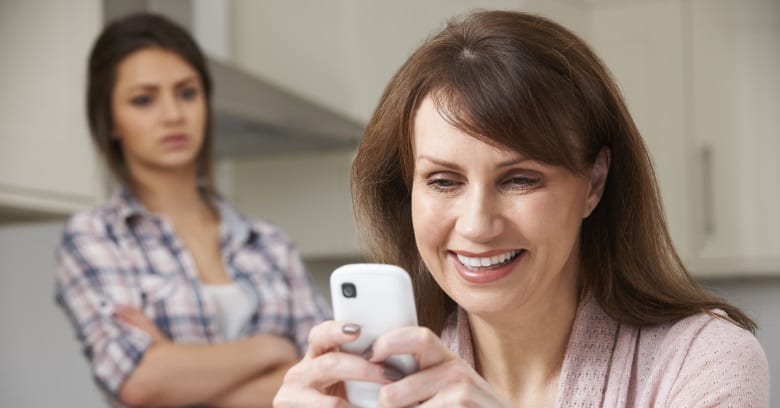When the Guardian asked readers about their experiences, Apricot, who is 30 and lives in the north of England, wrote: “When I started to Facebook my own child’s pictures, I began to feel intensely uncomfortable. How could I instil in her a principle of privacy when I had essentially devalued hers from the beginning?” She stopped posting. “What we post is facets of ourselves,” said Tamasine Preece, a teacher in Bridgend, whose PhD includes a chapter on oversharing. “I think there is a morality to using children to explore parts of ourselves. My children are not me. They are separate.”
Kidron, who says she has never interacted with her children on social networking sites (they are now 19 and 21), thinks that her behaviour reflects the idea that “oversharing is inappropriate when the whole point of the journey to adulthood is to self-define – to work out who you are, what your values are, how you’re going to fit in. I think we have not thought hard enough about what that process might be like, if so much is shared and so much is public.
“There are three issues here,” she says. “One is the right to a certain sort of privacy. The second is the need of young people to transgress and bump into their edges, and for that to be somewhat safe. The third is the need to break away from the model of your parents.”
My own Facebook posts dried up as I researched this article. Of course, I can ask my children for consent, but I am not sure they are ready for a responsibility with permanent consequences. If an eight-year-old consents to a post, is it fair to act upon that consent, or should a parent second-guess how those feelings might evolve? After all, posts are eternal and a child cannot speak for his or her future self.
In any case, a child’s consent can be capricious, even within one given day. My daughter, at eight, would prefer her photo not to appear on Facebook, but would be more than happy to see a video of herself playing Swingball on YouTube. My six-year-old, meanwhile, says he is sad that “Google doesn’t know me”. Even the teenagers at Kingsford are conflicted. In the end, they vote against Erin’s suggestion of a fine for parents who share without their children’s consent, but they squirm in their seats, clawing the air for a turn to speak when I ask what rules they would lay down for their parents:
“Don’t say embarrassing jokes ’cos that’s too much.”
“As far as the world is concerned, we’re not related.”
“Post pictures of me when I look amazing.”
“Don’t post baby pictures unless I’m happy and fully clothed.”
“Don’t ever comment on my pictures.”
“Don’t stalk my profile waiting for me to load pictures.”
“Don’t follow.”
“Don’t add me. Or my friends.”
“Don’t tell dad jokes.”
“Don’t take pictures of me eating food, ’cos my friends take it out of context.”
“Don’t try and use internet slang on our wall. On your friends’ profiles you can embarrass yourselves all you want, but when it’s on our profiles it looks like we’ve taught you to say that. And it makes us look really bad.”
“Stay behind the times.”
Of course, every family is different. In a quiet cul-de-sac in Newton Abbot, Devon, with sunlight pouring into the lounge, Molly Povey and her 11-year-old son Roman are sitting on the sofa discussing their experience of going viral.





![[Video] How to get rid of bed bugs in Toronto](https://www.thehowtozone.com/wp-content/uploads/2019/10/maxresdefault-2-100x70.jpg)


